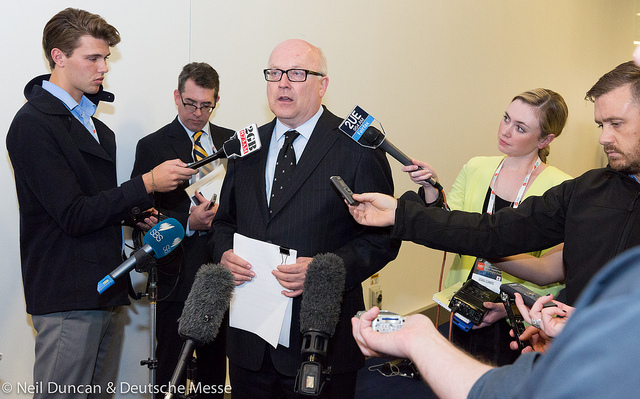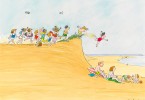Emerging arts groups have continued their attacks on the federal government’s cuts to arts funding today as the senate inquiry began in Melbourne.
The inquiry, backed by Labor and Greens, heard from members of the Melbourne arts community about the effects the cuts were having on the sector.
Many small- to medium-sized arts organisations have expressed concern over the new funding framework, over what has been perceived as a shift in funding towards high-end, profitable productions.
Blindside is one such organisation, which offers emerging Melbourne artists across all mediums an avenue to present their work.
Chair of the Blindside Board, Verity Hayward, said the government’s funding changes posed a large risk to emerging artists who were not part of a major organisation.
“Those younger emerging artists are what really feeds into the ecology of the Victorian arts scene and the wider Australian arts scene,” she said.
The changes in funding came after the handing down of the 2015-16 budget, where Arts Minister and Attorney General George Brandis removed $105 million from the Australia Council to fund a new body called the National Program for Excellence in the Arts.
In the past the Australia Council has funded numerous arts projects for emerging and alternative arts movements through its ArtStart grant, which has been effectively abolished by the funding cuts.
Ms Hayward said this would have a huge effect on the work of young artists.
“(ArtStart is) a huge amount of money for an artist that … allows them to expand on what they’ve been doing in art school.”
The draft guidelines for grant applications to the newly formed NPEA states the fund intends to support projects with “national outcomes”, and that the fund will not promote the work of individuals.
This puts increasing pressure on emerging artists as funding is diverted away from the less profitable streams previously funded by the Australia Council.
Lucie Mclntosh is an artist and current RMIT student. She said the changes in funding arrangements made other grants more competitive, which meant emerging artists would now be competing with more established artists with a broader appeal.
“Every project costs so much money to make. I think there will be less diverse art available to audiences,” she said.
When asked about the funding changes, Senator Brandis said critics were afraid of change, and said many in the sector had been unwilling to look at the draft guidelines for the new funding.
“They were put out as we genuinely welcome the feedback as to the terms of the guidelines,” Senator Brandis said on ABC radio.
While Senator Brandis assured the sector the changes will not adversely affect smaller branches of the sector, Ms Hayward said the government’s proposals represent a misunderstanding of the value of the arts.
“They (the arts) are a way of life for a lot of people, so I think that governments need to think of the arts in a different way.”
The senate inquiry will continue across the country, with the next sitting in Perth on September 3.
City Journal contacted Senator Brandis but did not receive a response.





